By: Rafiu Ajakaye
On Monday morning, December 20, the social media was awash with an article titled ‘It Does Not Take 15 Years’. It was written by a leading samurai of the Saraki dynasty, Mallam Bolaji Abdullahi.
Abdullahi, author, former editor, minister and commissioner, qualifies to be called a public intellectual by any fair standard. However, there is this thing called intellectual dishonesty. It is defined, per wiki.c2.com, as a ‘failure to apply standards of rational evaluation that one is aware of, usually in a self-serving fashion. If one judges others more critically than oneself, that is intellectually dishonest. If one deflects criticism of a friend or ally simply because they are a friend or ally, that is intellectually dishonest.’
For Mallam Abdullahi to be exonerated of intellectual dishonesty, then he would in turn be charged with ‘wilful ignorance’. Neither fits the persona he seeks to portray even as a member of the Saraki political dynasty. Having once read an article by the same fellow in which he dissected the reasons he thought they lost in 2019, it is only fair to charge him with intellectual dishonesty, not wilful ignorance. In that interview he granted Premium Times, he admitted that they truly dropped the ball and stopped short of saying they deserved all the humiliations that came with the 2019 shellacking. The volte-face he attempted in his ‘ It does not take 15 years’ passes for a survivalist attempt to warm himself into the heart of the emperor who holds the key to his political future.
The basis for his diatribe against Governor AbdulRahman AbdulRazaq was because the Governor said it would take the next 15 years to fix the gaps in the education sector. I struggled to understand his grouse with that statement. Circa 2016, the former administration put funding requirements for the infrastructural gap in the state at N255bn. How much of that deficit — along with the deterioration in social and physical infrastructure that took place between 2016 and 2019 when they left — was bridged? Add the fall in the value of the naira to the mix.
In the newly launched Kwara State Sustainable Development Plan (2021-2030), deficits to be fixed in the social sector (education and health) are estimated at approximately N2trillion. That is 42 percent of funding requirement for the N4.7tr plan. Let’s work with the revised 2021 budget figures of N169bn and see who truly understands the dynamics of the issues. At 25% allocation to education and 7% yearly budgetary increase, for example, it will take a minimum of 15 years to meet the goal.
Since the Governor was speaking about fixing the deficits and putting basic things in place, his mention of 15 years gap-bridging window was in fact conservative and ambitious.
The former minister attempted to play down the link between physical space and (classroom) activities in educational development. This is quite embarrassing to come from a former education commissioner. As one of the thinkers of the dynasty, could this thinking that decent physical space (for learning) is largely irrelevant to be responsible for why they left public schools like penitentiaries? Scholars of pedagogy have written extensively on the dynamic relationship between educational space (physical structure) and (learning) activities. This is particularly truer for little children who are seriously impacted by the aesthetics of their environment. I implore Mallam Bolaji to humbly update himself on this serious topic. If he doubts the serious impacts of environment in how humans grow and behave, I recommend Tim Marshall’s Prisoners of Geography to him.
In his flowery discussion on the politics of UBEC counterpart funding between federal and subnational governments, he cleverly sidestepped the critical issue. The crime the dynasty committed was not so much about not accessing the funds. As he rightly argued, states do not have the same capacity. Some states (read Kwara) also preferred arming urchins to sinking any funds in the future of its children. The crime the dynasty committed was the criminal diversion of the funds given by the UBEC. That was what led to the shameful black-listing of Kwara for seven years, three years shy of a whole generation. Think about it. I read my predecessor Wahab Oba sweating to explain that they sought to pay back the diverted N450m in 2019. They diverted money in 2013. Blacklisted from 2014. They sought to pay back in 2019 after losing an election wholesale. Is God not great? You sef think am nah! What Mallam Bolaji and other stake-seekers in the dynasty’s prebendal politics do now is pure ‘ego defense’, that psychological reaction to uncomfortable truth. What they did not do, this administration did. We paid N7.1bn counterpart funds to receive the grants for 2014, 2015, 2016, 2017, 2018, and 2020. The effects of such action across Kwara State are glaring to the blind. Priority.
Mallam Bolaji boasted about his achievements as education commissioner. Why not? But there is hardly any appreciable fact to link those initiatives to improved education outcomes in the state. That is the ultimate of any education policy. In fact, many of those reforms were never carried through. They existed at best on papers. Whereas a certain education official himself allegedly failed a serious emotional intelligence test by slapping a teacher, recruitments done under the former commissioner’s watch were never merit-based. Teaching slots were part of political largesse under his watch. One expected him, an advocate of good education, to at least issue a statement to congratulate the incumbent Governor they love to hate for recruiting 4,701 teachers without a shred of political interference. It takes courage and leadership to do that. On laurels, this administration has won several of them. But what truly matters is how the Kwara child fares, not any awards. Posterity will take care of that.
Regardless of Bolaji Abdullahi’s chest-thumping, two major developments exposed the underbelly of the rots in their system in 2019: the WAEC hammer on several schools in the state for widespread examination malpractices and JAMB’s report which raised the alarm that most UTME candidates from Kwara could not cope with its computer based test platforms. This pointed up a serious gap in functional education in the state, contrary to the grandstanding of Bolaji Abdullahi.
This administration does not pretend that all is well with the sector. Nor does it sit on the challenges. While we believe that fixing the physical space is key in educational development, we are convinced that that is not enough. That the Governor divorced politics from teachers’ recruitment, especially in an environment where job placements serve to burnish a politician’s credentials among your followers, underscores his statesmanship and deeper understanding of what is at stake. Besides, this administration recently held an education summit — to which Mallam Bolaji Abdullahi was invited as a former sector player, though he declined. This gives the lie to his gratuitous claim about anyone having an ‘adversarial mindset’ and speaks loudly to the maturity and large-heartedness with which the Governor handles state matters. Honest Kwarans can tell the past from the present, particularly viewing things from 2003.
A major outcome of the education summit is the Kwara State Education Transformation Agenda, a fruit of which is Kwara State Education Trust Fund Law, which seeks to bring in more stakeholders into the sector. Another is the Kwara Leading Education Achievement and Reform Now (KwaraLEARN). Planned to begin early next year, KwaraLEARN will transform all government primary schools across the state into powerful public institutions using an innovative technology and data-driven platform, coupled with high-quality learning materials, effective training and ongoing coaching for teachers and school leaders, and technology-enabled support teams to create 360-degree support for learning outcomes. It is a five-year programme the administration plans to lead Kwara to inclusive and sustainable socioeconomic growth and mobility. In place of physically abusing a teacher, the Governor in turn plans to use technology to deepen a mutually-beneficial regime of accountability in our schools.
One understands that politicians are back to their game ahead of the next ballot. We expect that the dynasty and its foot soldiers will play dirty. They will seek to rewrite history. But hard facts await them, irrespective of their sophistry. What the Governor did was to speak to the reality of Kwara. He will keep saying it, while working hard to make things better. While he does so, he is not unmindful of the sayings of Lee McIntyre that ‘deniers and other ideologues routinely embrace an obscenely high standard of doubt towards facts that they don’t want to believe, alongside complete incredulity toward any facts that fit with their agenda’.
• Rafiu Ajakaye is CPS to the Governor
Bolaji Abdullahi’s Intellectual Dishonesty

782E5151 7FAA 49D2 8701 D3A4F4735277


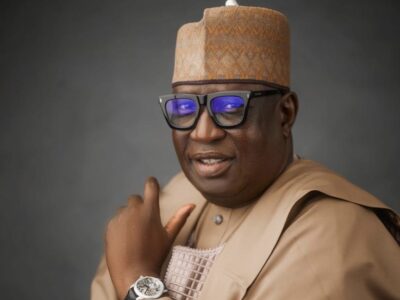
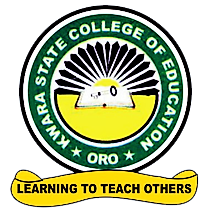
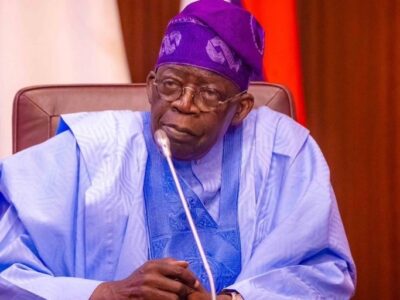
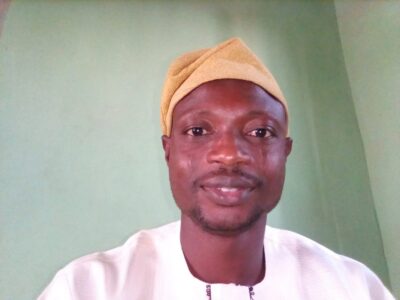
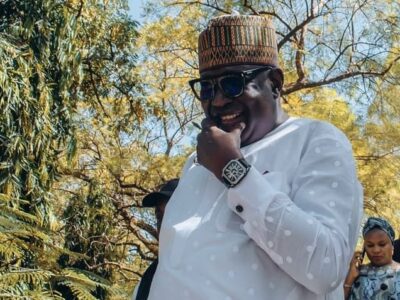
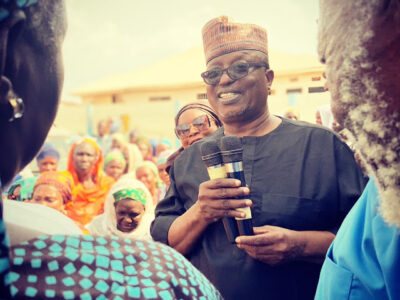

Comments